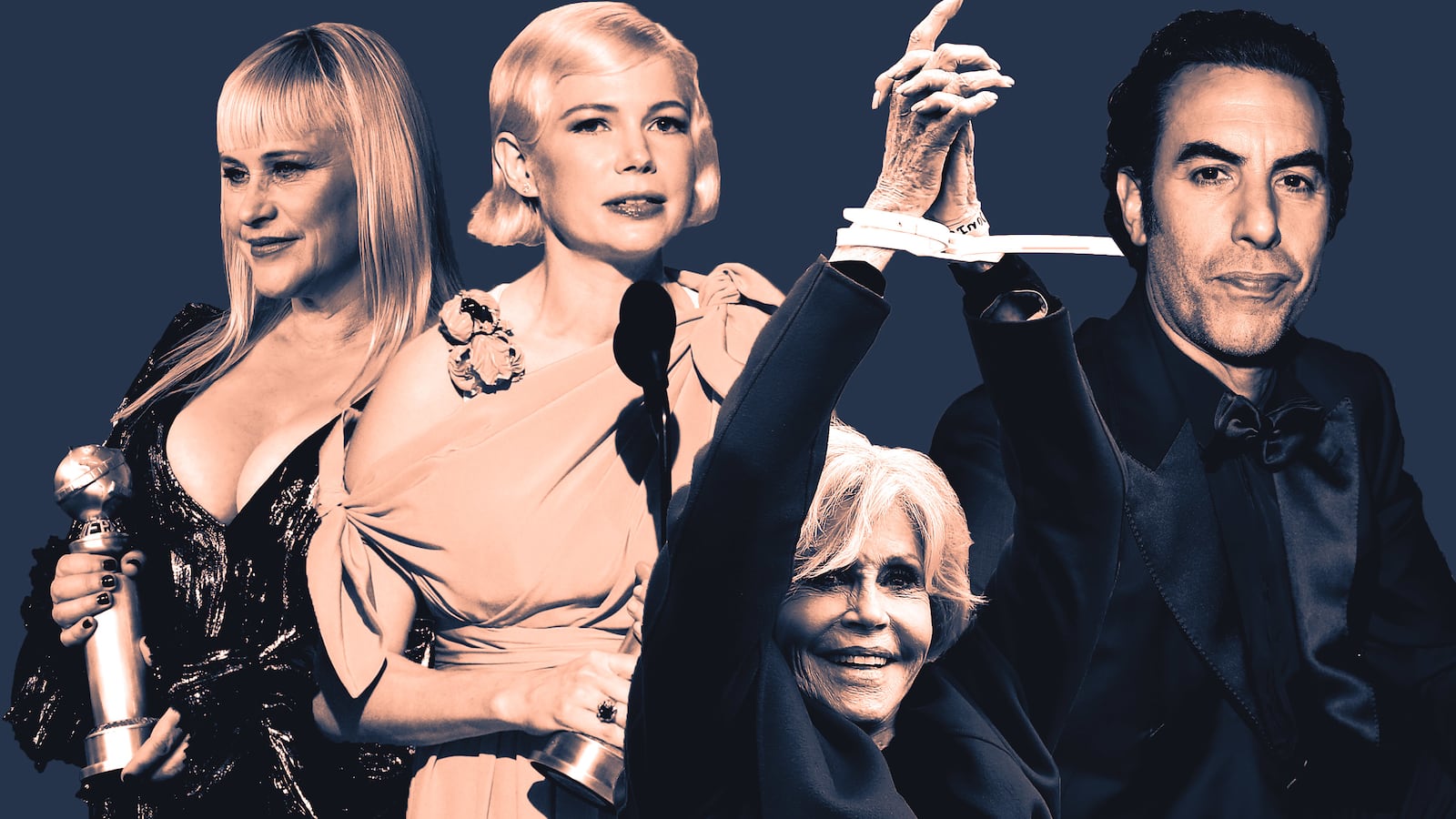Yes, major Hollywood awards are useless measures of the value of individual films. But with this week’s Golden Globes ceremony, the question has transformed to one of greater utility: Can the ceremonies serve as useful political platforms in which famous people give voice to important issues that may be ignored by mainstream media outlets or obscured by the state? At the Globes, many big-name actors defied host Ricky Gervais’s taunts to not speak up about social and political issues (because of the seeming hypocrisy of their corporate streaming deals): Joaquin Phoenix preached the importance of taking action to save the planet by eating vegan and avoiding private planes; Michelle Williams spoke up about reproductive rights; and after thanking Hulu, Patricia Arquette pleaded for people to vote in 2020 for a better future. Each of these speeches, while well-meaning, urgent, and based in fact, were not groundbreaking; they preached electoral politics and individual action as the tools to effect change rather than community organizing and collective agitation.
To be fair, Williams did nod toward collectivity as she emphasized electoral politics. But in doing so, she mistakenly asserted that it is in all women’s best interest to vote for progressive candidates. In fact, it is not—as we saw with the 47 percent of white women who voted for Trump, many women, particularly white women of means, will find that it behooves them to vote for empire, conservatism, and state violence because their wealth and proximity to white male power will both protect and advance them.
These are the women who, even if they are not privately against abortion, may have no personal reasons to protect reproductive rights—they will be able to procure an abortion no matter the legislation and give birth with minimal risk at a private hospital. They are the women who might sneer at other women in hijab on the train, lament the presence of homeless people in their neighborhoods, or cast their queer child out of the house. They are the women who are unlikely to fight for anyone other than themselves, cannot see much beyond their individual circumstances and concerns, and are decidedly not part of any collective whole but that of whiteness or wealth. Sometimes this will mean voting for Republican and far-right candidates, and sometimes it will simply mean voting for Democrats who support conservative policy like huge military budgets and strict immigration enforcement. Either way, the progressive coalition Williams imagines does not and cannot rest on identity alone.
And while the defiance of Ricky Gervais via insistence upon progressive political speech can only be a net good, the positions Phoenix, Williams, Arquette and others took during the ceremonies are actually quite tame in comparison to the celebrity activism of older generations. Take, for one, Marlon Brando sending Sacheen Littlefeather on stage at the 1973 Academy Awards to refuse his Best Actor Oscar and speak on the U.S.’s brutalization of the American Indian community. The crowd booed her, and later in the ceremony, actors like John Wayne and Clint Eastwood made a point to defy the action by emphasizing the power of American empire as depicted through the movies.
Brando was known for using his celebrity to highlight the voices of marginalized people—he sought to make himself useful by listening and participating, and did not assume that his fellow artists had individual reasons to be on his side. Jane Fonda risked her career and public profile for anti-war activism both during and after the Vietnam War, and now is missing awards ceremonies to head up climate change protests in D.C. with fellow celebrities. And most impressively, Muhammad Ali conscientiously objected to fighting in Vietnam, was arrested and convicted, stripped of boxing titles, and throughout it all, debated white college students about imperialism and domestic anti-blackness.
This is all to say that speechifying about individual responsibility is simply not enough. Voting is not enough. Eating vegan and decommissioning your private jet is not enough. Like ordinary people with relative power in society, celebrities of the day must be willing to risk their privileged positions in order to effect any progressive change. And they must do this as members of the public by placing their bodies in public spaces—using those bodies to protect the vulnerable, for instance, by risking arrest for those who simply cannot—and by challenging the complacency of their peers rather than providing them with yet another inoffensive proclamation to dully applaud at dinner. Meaningful, radical celebrity activism has been done before, and, if Hollywood wants to transcend attacks of hypocrisy from ghouls and cynics during a time of real crisis, ought to be done again.


